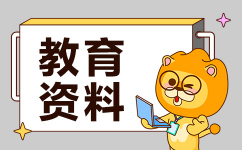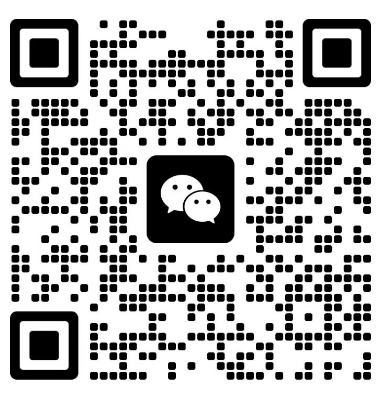下面是小编收集整理的小升初英语复习重点3篇,大家一起来看看吧。
小升初英语复习重点1
语法知识
一.名词:名词单复数,名词的格
(一)名词单复数
1.一般情况,直接加-s,如:book-books,bag-bags,cat-cats,bed-beds
2.s.x.s结尾,加-es,如:bus-buses,box-boxes,brush-brushes,watch-watches
3.以“f或fe”结尾,变f或fe为v,再加-es,如:knife-knives
4.不规则名词复数:
man-men,woman-women,policeman-policemen,policewoman-policewomen,mouse-mice
child-children,foot-feet,tooth-teeth,fish-fish,people-people,Chinese-Chinese,Japanese-Japanese
不可数名词的复数就是原型:paper,juice,water,milk,rice,tea
(二)名词的格
(1)有生命的东西的名词所有格:
a)单数后加's如:Lucy's ruler my father's shirt
b)以s结尾的复数名词后加'如:his friends'bags
c)不以s结尾的复数后加's children's shoes
并列名词中,如果把's加在最后一个名词后,表示共有,如:
Tom and Mike's car汤姆和迈克共有的小汽车
要表示所有物不是共有的,应分别在并列名词后加's
Tom's and Mike's cars汤姆和麦克各自的小汽车
(2)表示无生命东西的名词通常用“of+名词”来表示所有关系:如:
a picture of the classroom a map of China
二.冠词:不定冠词,定冠词种类:
(1)不定冠词:a/an a unit/an uncle
元音开头的可数名词前用an:
an egg/an apple/an orange/an eraser/an answer/an ID card/an alarm clock/an actor/an actress/
an e-mail/an address/an event/an example/an opera/an houran old man/an interesting book/an
exciting sport/an action movie/an art lesson/
(2)定冠词:the the egg the plane
2.用法:
定冠词的用法:
(1)特指某(些)人或某(些)物:The ruler is on the desk.
(2)复述上文提到的人或物:He has a sweater.The sweater is new.
(3)谈话双方都知道的人或物:The boys aren't at school.
(4)在序数词前:John's birthday is February the second.
(5)用于固定词组中:in the morning/afternoon/evening
不用冠词的情况:
(1)专有名词前:China is a big country.
(2)名词前有定语:this,that,my,your,some,any,no等:
(1)1-20
one,two,three,four,five,six,seven,eight,nine,ten,eleven,twelve,thirteen,fourteen,fifteen,
sixteen,seventeen,eighteen,nineteen,twenty
(2)21-99先说“几十”,再说“几”,中间加连字符。
23→twenty-three,34→thirty-four,45→forty—five,56→fifty-six,67→sixty-seven,78→seventy-eight,89→
eighty-nine,91→ninety-one
(3)101—999先说“几百”,再加and,再加末两位数或末位数;
586→five hundred and eighty-six,803→eight hundred and three
(4)1,000以上,先从右往左数,每三位数加一个“,”,第一个“,”前为thousand.第二个“,”前为million,第三个“,”前为billion
1,001→one thousand and one
18,423→eighteen thousand,four hundred and twenty-three
6,260,309→six million two hundred and sixty thousand three hundred and nine
750,000,000,000→seven hundred and fifty billion
二、序数词
(1)一般在基数词后加th
eg.four→fourth,thirteen→thirteenth
(2)不规则变化
one→first,two→second,three→third,five→fifth,eight→eighth,nine→ninth,twelve—twelfth
(3)以y结尾的十位整数,变y为ie再加th
twenty→twentieth,forty→fortieth,ninety→ninetieth
(4)从二十一后的“几十几”直至“几百几十几”或“几千几百几十几”只将个位的基数词变为序数词。
twenty-first,two hundred and forty-fifth
基数词转为序数词的口诀:
基变序,有规律,词尾加上-th.
一,二,三,特殊记,词尾字母t,d,d.
八去t,九去e,ve要用f替。
ty将y变成i,th前面有个e.
若是碰到几十几,前用基来后用序。
六、介词:常用介词:in,on,at,behind等
1.at表示时间概念的某一个点。(在某时刻、时间、阶段等)。
at 1:00(dawn,midnight,noon)在一点钟(黎明、午夜、中午)
2.on
1)表示具体日期。
注:(1)关于"在周末"的几种表示法:
at(on)the weekend在周末---特指
at(on)weekends在周末---泛指
over the weekend在整个周末
during the weekend在周末期间
(2)在圣诞节,应说at Christmas而不说on Christmas
2)在(刚……)的时候。
下面是小编收集整理的小升初英语复习重点3篇,大家一起来看看吧。
小升初英语复习重点1
语法知识
一.名词:名词单复数,名词的格
(一)名词单复数
1.一般情况,直接加-s,如:book-books,bag-bags,cat-cats,bed-beds
2.s.x.s结尾,加-es,如:bus-buses,box-boxes,brush-brushes,watch-watches
3.以“f或fe”结尾,变f或fe为v,再加-es,如:knife-knives
4.不规则名词复数:
man-men,woman-women,policeman-policemen,policewoman-policewomen,mouse-mice
child-children,foot-feet,tooth-teeth,fish-fish,people-people,Chinese-Chinese,Japanese-Japanese
不可数名词的复数就是原型:paper,juice,water,milk,rice,tea
(二)名词的格
(1)有生命的东西的名词所有格:
a)单数后加's如:Lucy's ruler my father's shirt
b)以s结尾的复数名词后加'如:his friends'bags
c)不以s结尾的复数后加's children's shoes
并列名词中,如果把's加在最后一个名词后,表示共有,如:
Tom and Mike's car汤姆和迈克共有的小汽车
要表示所有物不是共有的,应分别在并列名词后加's
Tom's and Mike's cars汤姆和麦克各自的小汽车
(2)表示无生命东西的名词通常用“of+名词”来表示所有关系:如:
a picture of the classroom a map of China
二.冠词:不定冠词,定冠词种类:
(1)不定冠词:a/an a unit/an uncle
元音开头的可数名词前用an:
an egg/an apple/an orange/an eraser/an answer/an ID card/an alarm clock/an actor/an actress/
an e-mail/an address/an event/an example/an opera/an houran old man/an interesting book/an
exciting sport/an action movie/an art lesson/
(2)定冠词:the the egg the plane
2.用法:
定冠词的用法:
(1)特指某(些)人或某(些)物:The ruler is on the desk.
(2)复述上文提到的人或物:He has a sweater.The sweater is new.
(3)谈话双方都知道的人或物:The boys aren't at school.
(4)在序数词前:John's birthday is February the second.
(5)用于固定词组中:in the morning/afternoon/evening
不用冠词的情况:
(1)专有名词前:China is a big country.
(2)名词前有定语:this,that,my,your,some,any,no等:

